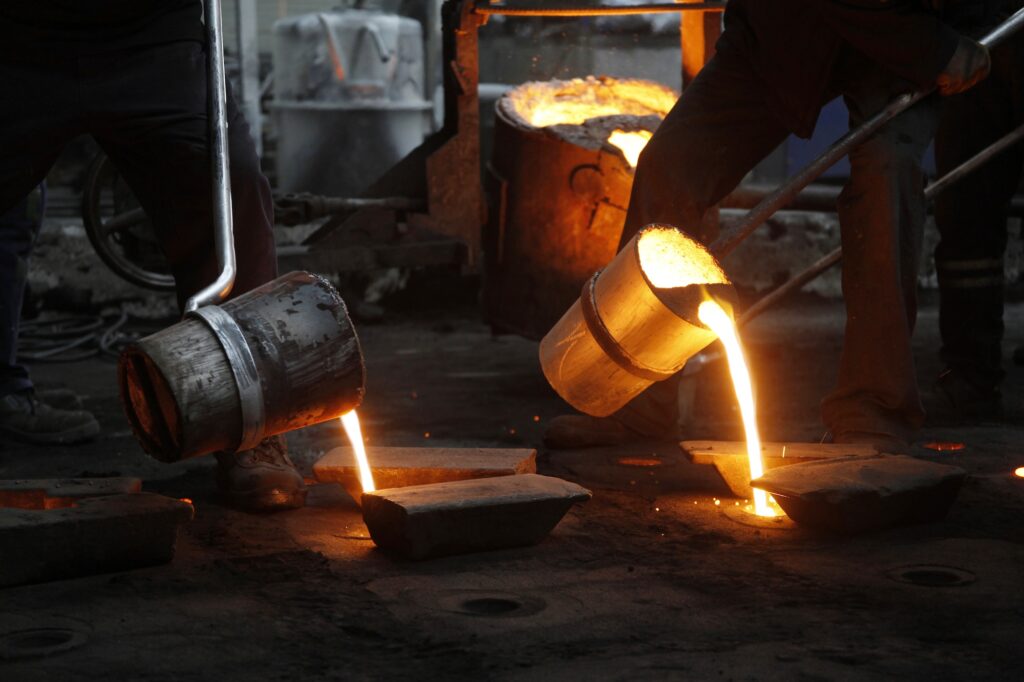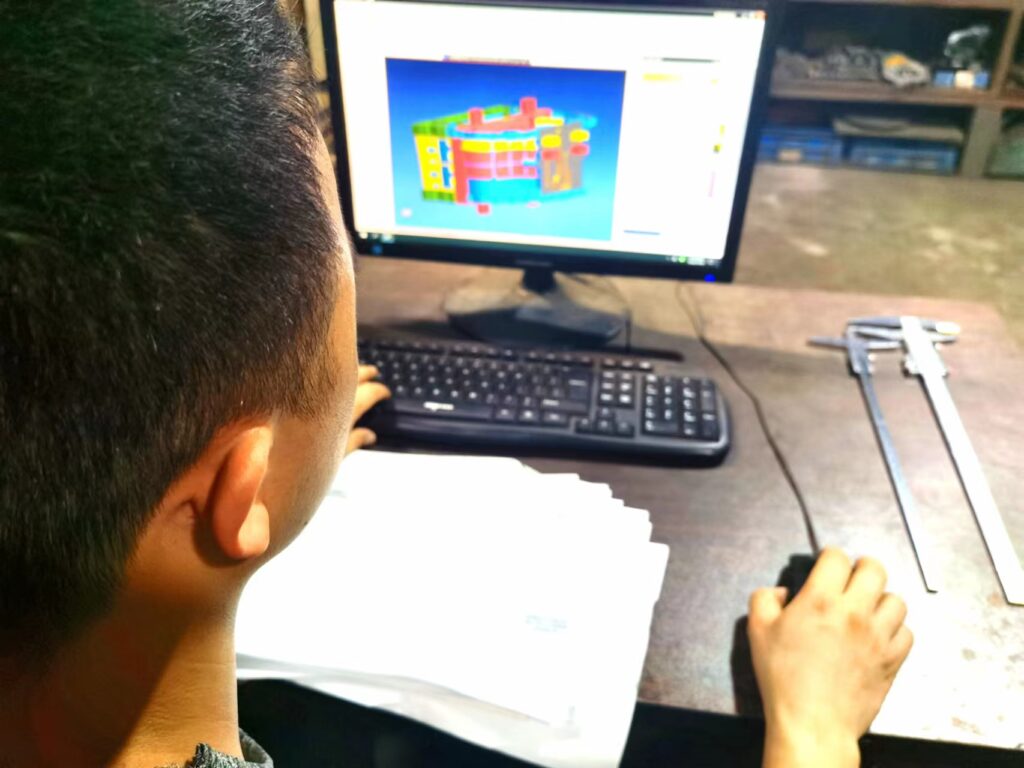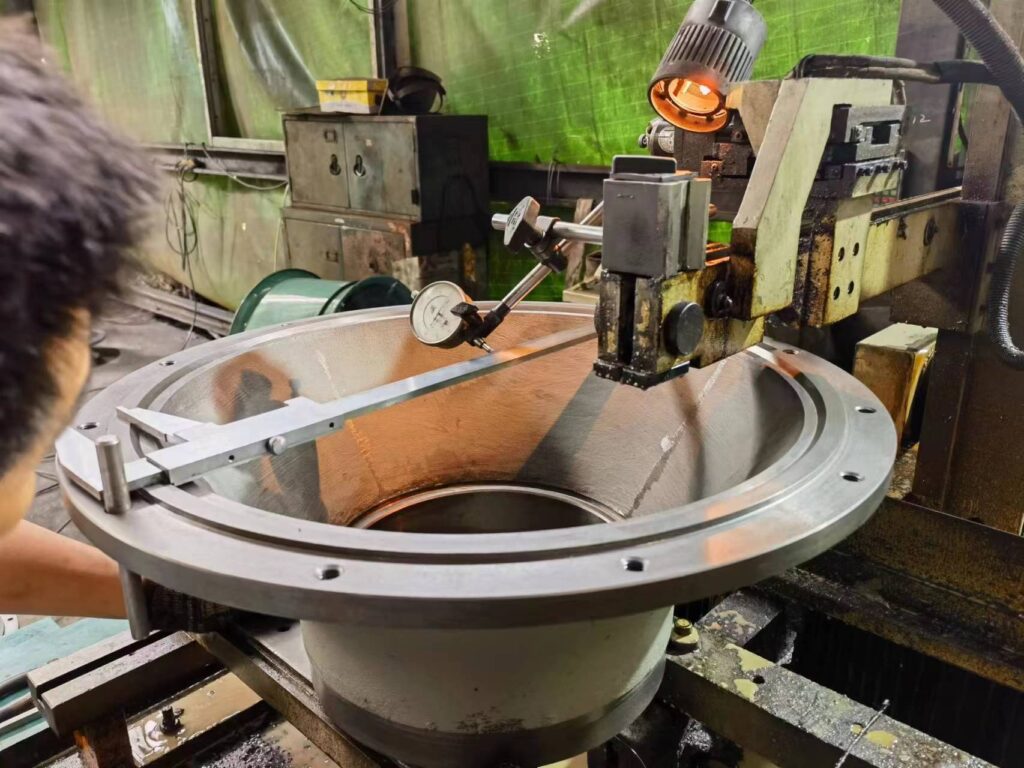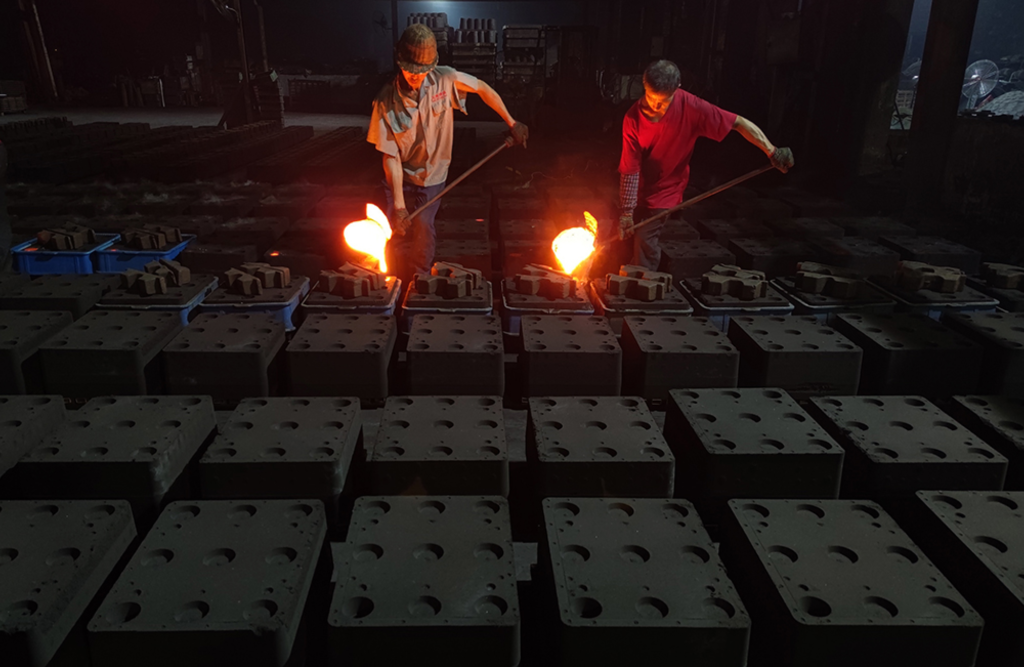Introduction
In the world of manufacturing, quality control plays a crucial role in delivering products that meet the highest standards. This is particularly true in the iron casting industry, where precision and durability are of paramount importance.
We are Castimoo, as a leading Chinese iron casting supplier, we understand the significance of quality control in delivering superior products to our customers not only within China but also across the globe, including the United States, Japan, Europe, and other countries.
In this article, we will explore the various aspects of quality control in iron castings and shed light on how we ensure precision and durability in our manufacturing process.
The Iron Casting Process
Before delving into quality control measures, let’s first understand the iron casting process. Iron casting is a complex manufacturing process that involves several stages, starting from pattern making and molding to pouring and finishing. Each stage requires careful attention to detail to ensure the final product meets the desired specifications.

Pattern making is the initial step, where a pattern or model of the desired product is created. This pattern serves as a template for the mold, which is made from a mixture of sand and binders. The molten iron is then poured into the mold, taking the shape of the pattern.
Once the iron cools and solidifies, the mold is removed, and the casting undergoes finishing processes such as cleaning, grinding, and heat treatment to achieve the desired surface finish and mechanical properties.
Key Factors Affecting Quality
Numerous factors can influence the quality of iron castings. Let’s explore some of the key factors that play a crucial role in achieving precision and durability.
Material Selection
Choosing the right material is vital for achieving the desired mechanical properties and corrosion resistance. Factors such as the casting application, load-bearing requirements, and environmental conditions need to be considered when selecting the appropriate iron alloy.
Mold Design
The design of the mold determines the shape and dimensions of the final casting. A well-designed mold ensures accurate reproduction of the pattern and minimizes defects such as shrinkage, porosity, or misruns.

Pouring Techniques
The pouring process affects the flow of molten iron into the mold cavity. Proper pouring techniques, including the control of pouring temperature, pouring rate, and gating system design, help prevent defects like cold shuts, misruns, or mold erosion.
Heat Treatment
Heat treatment plays a vital role in enhancing the mechanical properties of iron castings. The right heat treatment process, including annealing, quenching, or tempering, improves strength, hardness, and toughness, ensuring the durability of the final product.
Quality Control Measures
To ensure precision and durability in our iron castings, we implement stringent quality control measures at every stage of the manufacturing process. These measures are designed to identify and address any defects or imperfections promptly. Let’s take a closer look at some of the key quality control measures we employ:
Advanced Technologies
We utilize advanced technologies such as computer-aided design (CAD) and simulation software to design and optimize our casting processes. These tools enable us to create intricate designs, identify potential defects, and optimize the manufacturing parameters for enhanced precision and durability.

Material Testing and Inspection
We conduct rigorous material testing to ensure the quality of the iron alloys used in our castings. This includes chemical analysis, mechanical testing, and non-destructive testing techniques such as ultrasonic testing to detect any hidden flaws or discontinuities.
Visual Inspection
Visual inspection is a critical part of our quality control process. Our trained inspectors carefully examine each casting for surface defects, dimensional accuracy, and overall appearance. Any deviations from the specified requirements are documented and addressed promptly.
Non-Destructive Testing (NDT)
We employ advanced non-destructive testing techniques like X-ray and ultrasound to detect internal flaws, porosity, or inclusions that may compromise the structural integrity of the castings. NDT helps us identify potential defects before they become major issues, ensuring the durability of our products.
ISO 9001 Certification
We are proud to hold the ISO 9001 certification, which demonstrates our commitment to meeting international quality standards. This certification is a testament to our rigorous quality control processes and our dedication to continuous improvement.

Skilled Workforce and Training
At Castimoo, we recognize that a skilled workforce is integral to maintaining quality control. Our team comprises highly skilled technicians, engineers, and quality control personnel who possess in-depth knowledge of the iron casting process.
We believe in investing in our workforce by providing them with regular training and development opportunities. This enables them to stay updated with the latest advancements in the industry, enhance their technical expertise, and maintain the highest quality standards.
Continuous Improvement and Innovation
Innovation and continuous improvement are at the core of our quality control philosophy. We believe in constantly challenging ourselves to enhance our manufacturing processes, improve product performance, and stay ahead of the competition. We actively seek feedback from our customers and utilize it to drive innovation and implement necessary corrective actions.
Additionally, we collaborate with industry experts and academic institutions to explore new technologies, materials, and techniques that can further enhance the precision and durability of our iron castings.
Customer Satisfaction and Global Reach
Customer satisfaction is our ultimate goal. We are proud to have a diverse clientele across China, the United States, Japan, Europe, and other countries who rely on our iron castings for their critical applications. Our commitment to delivering superior quality products has garnered positive feedback and long-lasting relationships with our customers.
Conclusion
In the world of iron castings, quality control is of utmost importance to ensure precision and durability. At our company, we have established a robust quality control system that encompasses every aspect of the manufacturing process. From material selection and mold design to pouring techniques, heat treatment, and rigorous inspection, we leave no stone unturned in delivering products that meet and exceed customer expectations.
With our skilled workforce, dedication to continuous improvement, and adherence to international quality standards, we strive to be the trusted partner for all your iron casting needs. Choose us for precision, durability, and exceptional quality control.
